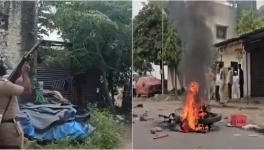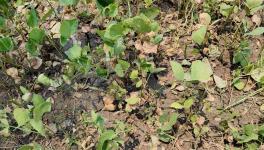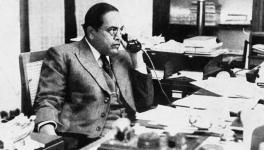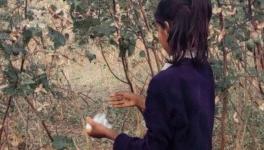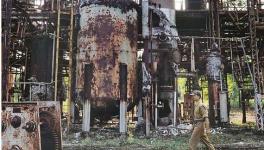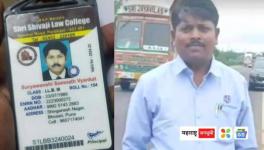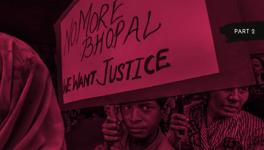Family of Dead Jabalpur Doc Alleges Caste Slur, to Meet Chhattisgarh Governor for Action
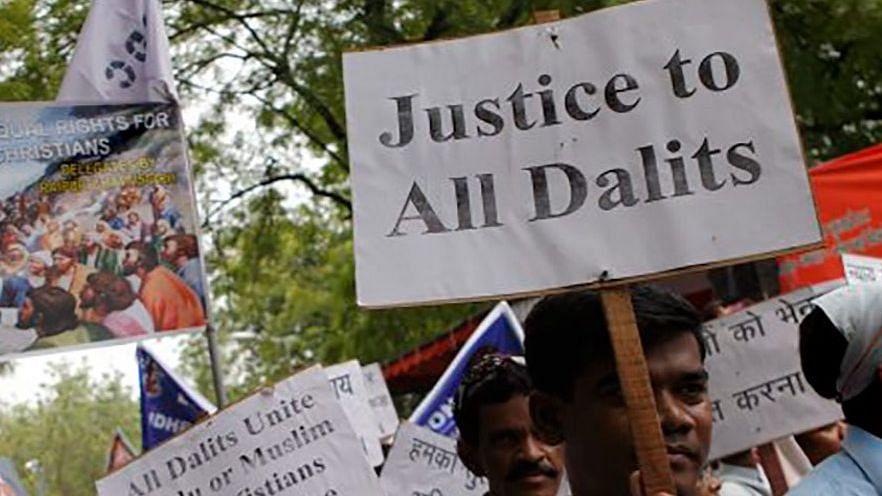
File photo. | Image courtesy: National Herald
The family of Dr Bhagwat Dewangan, who died by suicide, has alleged ragging and caste-based discrimination, and said on Monday that they will meet Chhattisgarh Governor Anusuiya Uikey seeking urgent action in the case. They will likely be the first-ever family from Rahod to do so.
On October 1, Dr. Bhagwat, a junior doctor from an OBC (Other Backward Class) community attached to the state-run Netaji Subhash Chandra Bose Medical College and Hospital in Jabalpur, was found dead in his hostel room.
His alleged suicide is yet another example of the emotional and physical caste-based violence that marginalised students have to endure in medical schools.
“My brother was unhappy with the way he was being treated by his seniors in the hostel. He lodged an email complaint with the authorities barely two weeks after his admission in July. He was unhappy and was repeatedly mistreated by his seniors,” alleged Prahlad, his elder brother.
Even then, what unfolded in the case before and on October 1 was shocking, he added.
On September 26, Bhagwat returned to his workplace after spending nearly 45 days at home. He reportedly refused to resume work and wished to stay alone.
On October 1, Prahlad says he received a call from a senior doctor who informed the family that Bhagwat was not responding to phone calls and was yet to rejoin work.
The family called him and requested him to report for work, to which he replied that he had already “had word with one of my seniors and I will report to my workplace,” Prahlad says, recalling the sequence of events that unfolded that day over the telephone.
In the afternoon, Bhagwat’s father made several calls to him, but failed to get any reply. Finally, the family decided to call a colleague of his, requesting him to visit his room
Around 6 p.m, the hostel in-charge and anti-ragging committee member, Dr Arvind Sharma, called Prahlad, saying his brother was critical and requested them to reach Jabalpur at the earliest, according to the police.
Members of the deceased doctor’s family reached Jabalpur around 2 a.m and were informed that he had died by suicide from hanging himself. The next morning, around 9 a.m, his brothers were shown the body of Bhagwat, a young aspiring doctor who excelled in his studies. He was pursuing a post-graduate course in orthopaedics from the general category, despite availability of reserved seats.
“We have an OBC certificate but Bhagwat took admission in the general category,” Prahlad says. The Dewangan community is from the OBC category, while Bhagwat’s family is listed as Extremely Backward Caste.
The Complaint
The family has lodged a complaint with Jabalpur’s Garha police station, alleging that Bhagwat was constantly ragged by a group of five seniors due to his caste. “My brother had been suffering from stress due to the harassment, torture and ragging,” Prahlad said.
The family’s claim was, however, refuted by the Junior Doctors Association (JDA).
“The family members have levelled charges of ragging. In response to the allegations, an anti-ragging committee meeting was held. I am not the right person to talk about the ongoing investigation in the case,” Dr. Pankaj Singh, regional president of JDA in Jabalpur, said.
An Earlier Attempt
According to Prahlad, the eldest of the four siblings, who helps his father in running a small shop selling stainless steel utensils, a few days after joining college, Bhagwat had started complaining to them about “misbehaviour and misconduct” by some of his seniors.
On hearing this, we asked him to keep his cool and bring the matter to the notice of the authorities. However, the advice didn’t seem to work. A few days after he joined college, the family received a jolt on July 24, when they received a call.
‘Aapke bhai ne neend ki goliya kha lee hain (Your brother has consumed slipping pills).’ That was Bhagwat’s first attempt to end his life, his brother says.
Long Leave
After recovering, Bhagwat went on leave and resumed work after eight days.
According to the family, a few days later, he took a break again and spent a few days in Jabalpur at a friend’s house. From there, he applied for long leave of nearly 40 days to his departmental head and reached home.
Protests in Town
On October 2, when the body of the young doctor from a marginalised community reached Rahod, it led to protests in the town. For several hours, several people staged demonstrations alleging
ill-treatment of backward caste students in medical institutions, accused the law enforcement agencies for not investigating the cases properly and college administrations for cover-ups.
The incident forced the Chhattisgarh’s Health Minister, T.S. Singh Deo, to shoot off a letter to Madhya Pradesh Chief Minister Shivraj Singh Chouhan, demanding a proper investigation into the circumstances that pushed Bhagwat to suicide.
The Birsa Ambedkar Phule Students Association (BAPSA) has extended solidarity to the family and demanded that justice be delivered.“From Rohith Vemula to Dr Payal Tadvi, nobody has received justice. We’ve lost another scholar,” BAPSA said.
Some of Bhagwat’s friends have also launched a campaign on Twitter, with the hashtag #JusticeForBhagwat, demanding action against those behind his alleged suicide and justice for the family members.
“How many more young Dalit Bahujan Adivasi lives will these killing fields of casteist educational institutions claim? Those who abetted and drove Payal Tadvi to take her own life are now allowed to continue their studies. There has to be stringent punishment. #JusticeForBhagwat,” tweeted author Meena Kandasamy.
Meanwhwile, the police has begun questioning staff and seniors of the medical institute, but is yet to register an FIR in the case, Additional SP Gopal Khandel confirmed. The police say there is no proof.
Bhagwat’s case brings back memories of Payal Tadvi, who left behind a suicide note with an account of the caste discrimination she faced at her college. The country witnessed 23 suicides by students due to caste-based discrimination between 2008 and 2016.
The Nub of the Matter
Blame game apart, the question being asked is: How are these thin lines of caste-based discrimination drawn into the minds of young Indians?
Caste discrimination begins right at home when parents, grand-parents and relatives suggest and direct kids whom to sit, eat, play, walk, dance and swim with at a young age.
Though there are no written rules, in several villages in Tamil Nadu, caste comes in shades of red, yellow, green and saffron in many schools. To show to which caste they belong to, students wear bands of different caste-based shades on their wrists, and put a tilak on their foreheads.
News of boys and girls from lower-caste groups cleaning school premises or being made to sit in different rows in classrooms often make headlines in the Central India. From schools, it travels to educational bodies to government offices to public places, even to the vishram ghats (burial grounds).
In Bhagwat’s case, the question of an FIR is crucial since it is significant for knowing and understanding details of his stay at the institute after Pune’s Byramji Jeejeebhoy Medical College – from where he graduated – and from the Jawahar Navodaya Vidyalaya where he completed his schooling.
The author is a freelance journalist based in Madhya Pradesh.
Get the latest reports & analysis with people's perspective on Protests, movements & deep analytical videos, discussions of the current affairs in your Telegram app. Subscribe to NewsClick's Telegram channel & get Real-Time updates on stories, as they get published on our website.











